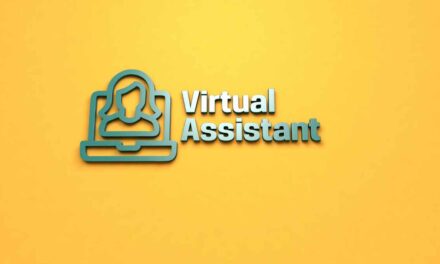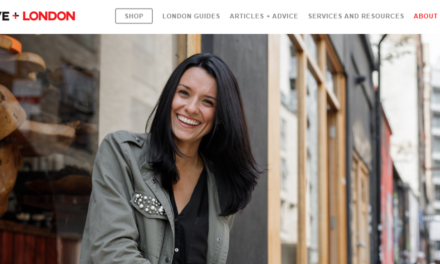Content entrepreneurs often have a singular focus on their business – creating the content, finding sponsorship partners, and handling the operations. You think more about the future of your small business and not so much about your personal future. We at The Tilt want to help with all aspects of your creator business so read on for more tips on personal finance for creators.
According to a survey from SCORE, a national network of small business mentors, 34% of small business owners do not have a retirement savings plan. One-third of those say they don’t think they’re making enough to save for their future. About one-quarter say they don’t see a need to save for retirement or don’t plan on retiring.
@SCOREmentors survey found 34% of small business owners do not have a retirement savings plan. #ContentBusiness #ContentEntrepreneur Share on XThat’s how your brain often works. Researchers at Stanford found when we think of our future selves, and we see a person unrelated to who we are in the present day. That can help explain why we’re so bad at preparing now for our future selves. “We’re having to work against our own internal hardwiring,” says Emily Boothroyd, a wealth manager and partner at Merit Financial Advisors.
But, for long-term success, it’s critical to prep for your future self – and the future of your business and family. “We need to put away our nest egg for our future,” Emily says.
Earlier this year, The Tilt covered the basics of personal finance for creators — building an emergency fund, addressing your high-interest debt, paying your taxes on time, and taking a hard look at your budget. If you’ve done all that, you’re ready for these four steps to take your personal business to the next level.
Goal 1: Plan for retirement
Socking away even a little bit of cash now can make a difference in your future. Planning for retirement should be a priority, Emily says. Content creators have some choices when it comes to retirement savings. Here are a couple of popular options:
- Individual Retirement Accounts: IRA accounts come in forms such as Simplified Employee Pension (SEP), Roth, and traditional. Each has pros and cons and annual contribution limits, but a big difference is this: With a Roth IRA, you pay taxes on your contribution upfront – the money can be withdrawn tax-free when you hit retirement age. With SEP and traditional IRAs, you pay the taxes when you withdraw the money. Investopedia outlines the key differences between the three.
- Solo 401(k): With a solo 401(k), you pay taxes once you start taking money out of the account. The plan also comes with annual contribution limits, which vary depending on your age and compensation level.
Caveat: In selecting the right retirement plan(s) for you, assess any and all related fees for each option.
Creators, socking away even a little bit of cash now can make a difference in your future, says #EmilyBoothroad of @MeritFinAdvisor via @slindenfeldhall. #ContentEntrepreneurs #PersonalFinance Share on XSCORE describes all of these retirement options for small business owners in more detail. As you consider what plan works best for you, don’t lose sight of how much you should be putting away. The savings rate is key. “Try to get to a point where at least 15% of your income is being put away for retirement in some fashion,” says Brandon Renfro, owner of Belonging Wealth Management. “Even if you have to start at something smaller, try to work up to a proper savings rate.”
#ContentEntrepreneurs should strive to save at least 15% of their income for retirement, says @RenfroPhD of #BelongingWealthManagement. #CreatorEconomy Share on XReading list: If you’re just getting started on your investment journey, Brandon highly recommends the book, A Random Walk Down Wall Street: The Time-Tested Strategy for Successful Investing by Burton G. Malkiel. “It has a lot to do with investing, but it also has basic elements of long-term financial planning,” he says. “It’s a great book to get started.”
Goal 2: Map your biggest dreams
What do you hope to accomplish beyond becoming a Twitch Partner or viral influencer? Do you want to buy your own home? Pay for your kids’ college educations? Take an extended vacation to the south of France? Become an angel investor to startup companies?
Once you set aside money in an emergency fund and a smart retirement strategy underway, think about your other goals and dreams and how you’ll make them happen.
Have an emergency fund and retirement strategy? Now it's time for #ContentEntrepreneurs to think about how to make your other personal goals and dreams happen, says @slindenfeldhall. Share on XA financial adviser can help create a foundation for your financial planning based on your personal goals. Emily says when shopping for an adviser, look for a professional who has worked with people like you – small business owners who have different revenue streams and fluctuating income.
Caveat: Understand how the financial advisor is compensated. For example, a fee-only planner charges differently than one who works in a brokerage firm.
Tip: To protect yourself and your hard-earned cash, work with an accredited financial adviser. It could be a certified financial planner (CFP) or a certified private wealth advisor (CPWA). CFPs and CPWAs must abide by certain rules and ethics. The SEC shares more tips, advice, and red flags to avoid investment fraud.
Goal 3: Ensure you’re insured
Nobody wants to think about death or a serious injury that makes it impossible for you to continue working, but stuff happens.
“If you’re young and you don’t have kids, you probably don’t need (life) insurance,” Emily says. “But if you’re a content creator, sole breadwinner, and you have three little kids, you should be thinking about life insurance.”
If you have a business partner, each of you should think about taking out a life insurance policy on the other. That way, if one of you dies, the remaining partner has money to hire someone to handle the deceased partner’s responsibilities.
Life insurance can make it possible for your children and partner to maintain some semblance of a normal life if you die prematurely. Disability insurance can provide at least a portion of your income if you suffer from an illness or accident that makes it difficult for you to work.
Yes, paying for insurance can, at times, feel like you’re throwing money away at nothing. You may never actually need it, and that’s the good news. It means your life is on a healthy and happy course. But insurance can provide tremendous peace of mind too.
“Every decision you make should be a conscious one,” Emily says. “You should never feel pressured into making a decision, and you should always ask, ‘What is the incentive behind this offering? Why does this person want me to do this?’”
Caveat: Businesses, including content creators, also might benefit from insurance, such as general liability and professional liability insurance. General liability covers claims that a business has damaged a person or property. Professional liability can protect you against claims that you’ve acted negligently.
#ContentEntrepreneurs should decide if they need life, general liability, and professional liability insurance, says @slindenfeldhall. #CreatorEconomy Share on XGoal 4: Get your estate in order
You might not have a sprawling mansion complete with an infinity pool and butler just yet. But you have an estate – possessions and property to pass on to the next generation.
A will, along with health care documents such as a living will, health care proxy, and health directives, all help ensure your wishes are followed in case of serious illness, injury, or death. A lawyer can help prepare these documents.
Is any of this fun? Nah. Not for most of us. But as your content business grows and matures, so should your personal finance game.
“That’s part of adulting,” Emily says. “That’s part of coming into your own and saying, ‘Hey, I’m taking charge of my financial future.”
About the author
Sarah Lindenfeld Hall is a longtime journalist, freelance writer, and founding editor of two popular parenting websites in North Carolina. She frequently writes about parenting, aging, education, business management, and interesting people doing remarkable things.











